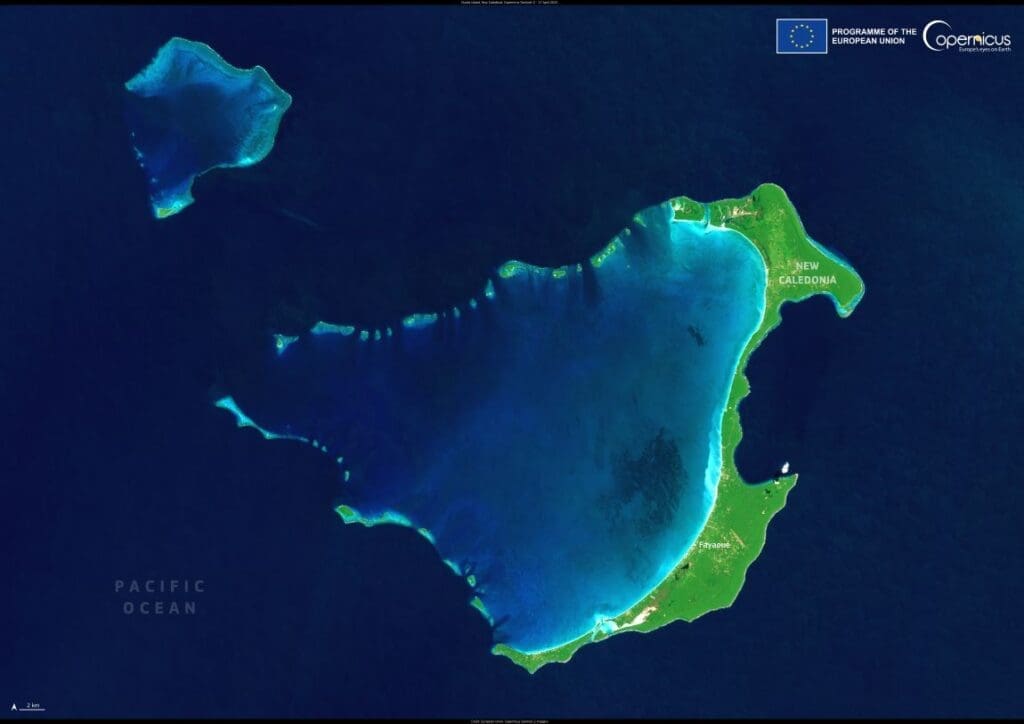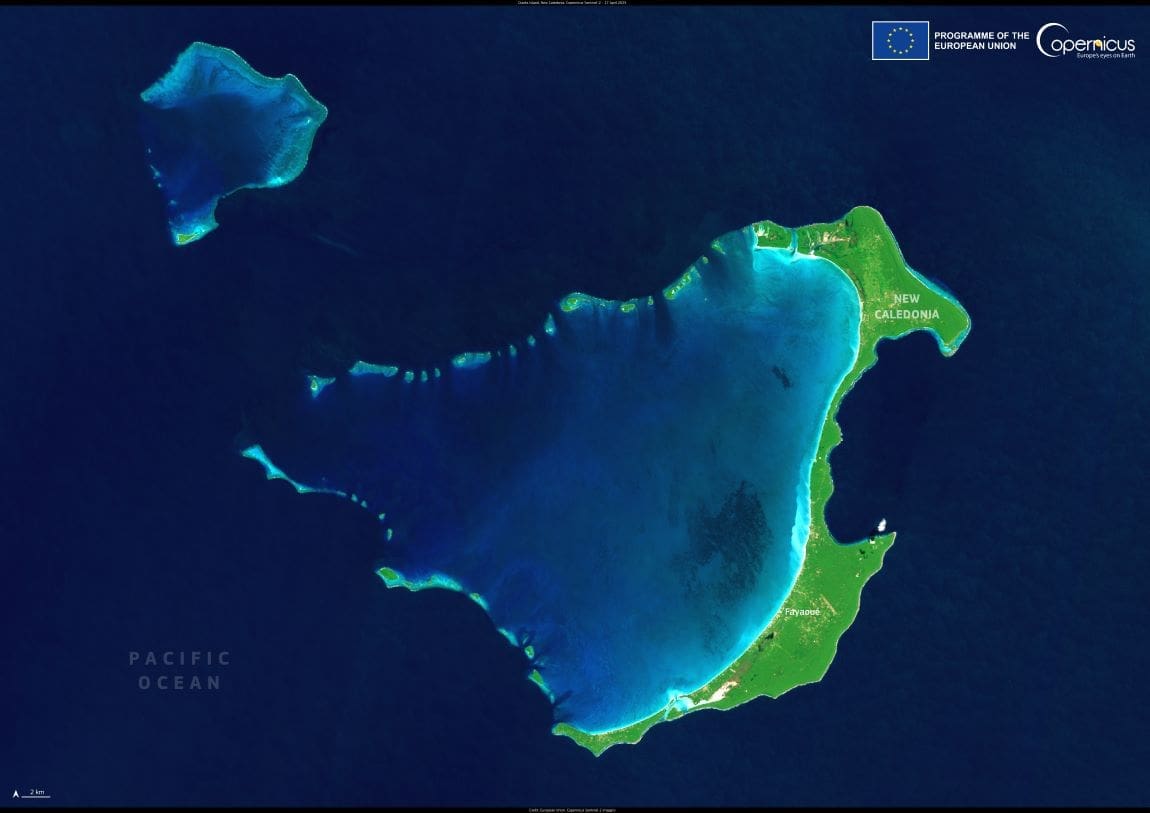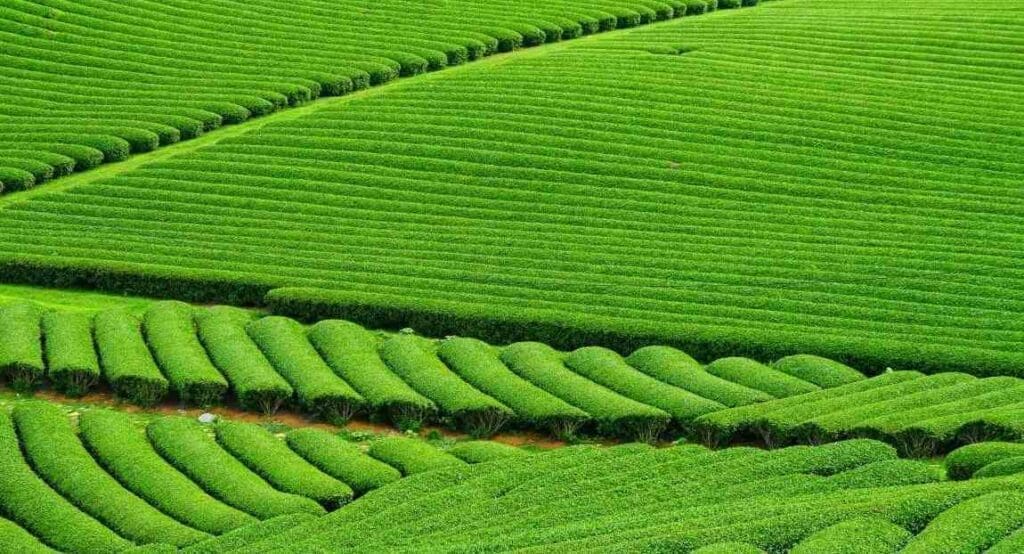Ouvéa Island, nestled in the Loyalty Islands of New Caledonia, showcases a stunning interplay of land, sea, and reef. This Copernicus Sentinel-2 image, captured on 17 April 2025, reveals the slender arc of the island fringed by a vivid turquoise lagoon and extensive coral formations stretching into the Pacific.
Designated a UNESCO World Heritage site, Ouvéa is part of one of the planet’s largest lagoon systems. Its waters harbor vibrant coral reefs and endangered marine life including dugongs and green sea turtles. These fragile habitats rely on the protective buffer of barrier reefs, which also shelter the coast from tropical storms. Inland, coconut groves and scrublands provide refuge for endemic bird species, adding to the island’s ecological value.

The image also highlights the clarity and shallowness of the lagoon, ideal for supporting seagrass meadows and juvenile marine species. Such satellite views are vital for tracking environmental changes. Using Copernicus Sentinel data, scientists can monitor coral bleaching, sediment flow, and human pressures that threaten reef ecosystems.
Ouvéa’s preservation is a collaborative effort involving local Kanak communities and conservation bodies working to balance tradition with ecological stewardship. As the island faces growing climate challenges, sustained monitoring remains key to safeguarding its natural heritage.
Featured image credit: European Union, Copernicus Sentinel-2 imagery




